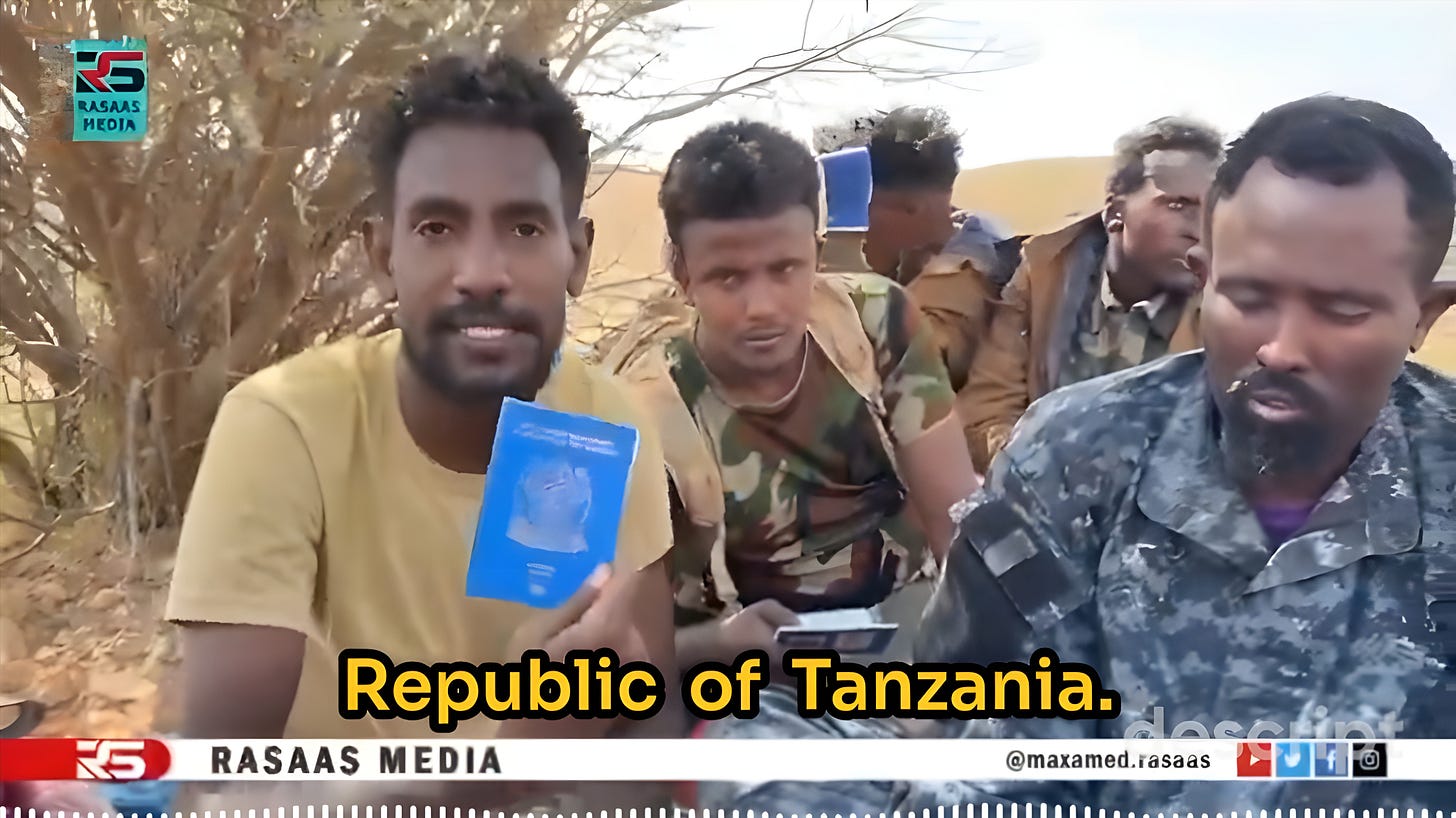Tanzania’s Rising Role in Global Jihad: How ISIS Is Recruiting Fighters from East Africa to Puntland

By Jasusi Blog | March 29, 2025
On March 28, 2025, a significant security development in the Horn of Africa underscored a growing concern for East African security watchers. A tweet by M. Mubarak, purportedly head of the Puntland Security Coordination Office, claimed that Puntland security forces had overrun an ISIS-linked terrorist reception base in Somalia and discovered over 30 foreign passports belonging to captured or deceased fighters. Among the nationalities listed were Moroccans, Tunisians, Kenyans, South Africans, Saudis, Bangladeshis, and notably, over 10 Tanzanians.
This startling revelation, accompanied by a video showing confiscated passports, reinforces a worrying trend: Tanzania is increasingly emerging as a fertile recruitment ground for transnational jihadist organisations, particularly ISIS factions entrenched in Somalia’s semi-autonomous Puntland region.
This article investigates the strategic implications of Tanzanian fighters being linked to ISIS operations in Puntland, the factors driving radicalisation in Tanzania, and the regional and global security risks posed by this development.
The Strategic Importance of Puntland to ISIS
The Puntland region in northeastern Somalia has gained notoriety as a haven for Islamic State fighters seeking refuge from the more heavily policed southern regions dominated by al-Shabaab. Since around 2015, ISIS has managed to entrench itself in Puntland, exploiting the region’s rugged terrain, clan divisions, and limited state capacity.
Unlike al-Shabaab, which is largely Somali-centric, the ISIS wing in Puntland maintains a more transnational character. It has established smuggling routes, foreign fighter pipelines, and ideological propaganda networks that span the broader East African region—and even extend to North Africa, the Middle East, and parts of Asia.
Recent intelligence suggests that Puntland’s ISIS faction increasingly relies on foreign fighters to bolster its ranks. The discovery of over 30 foreign passports in a single raid—including 10 or more from Tanzanian nationals—signals a concerning shift in both recruitment strategy and operational capability.



